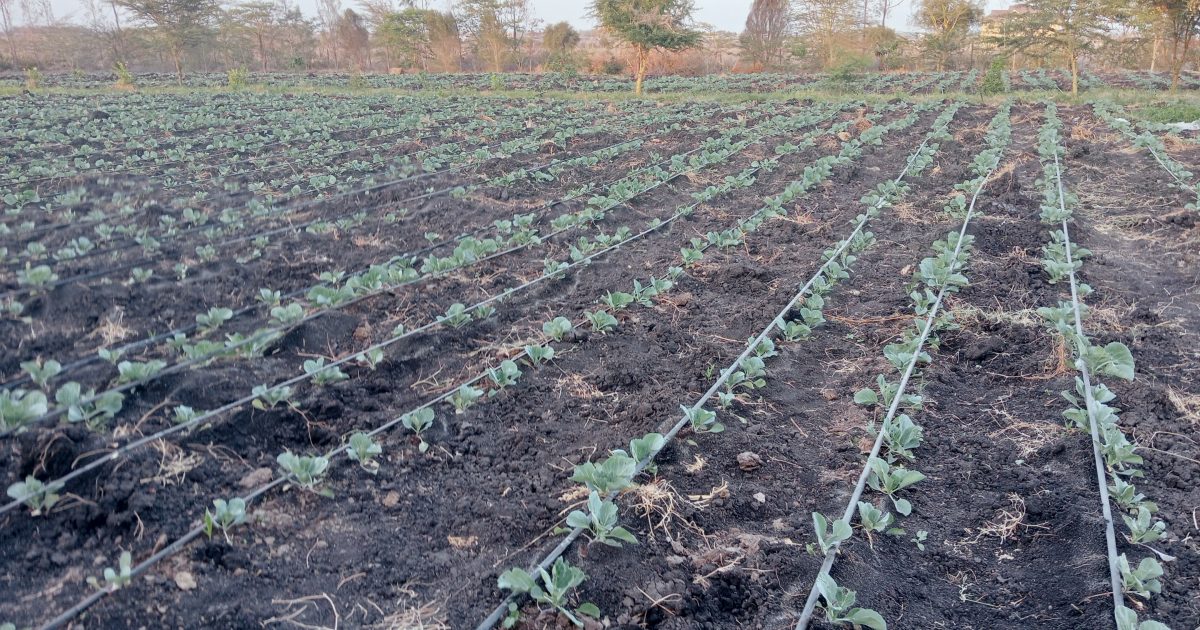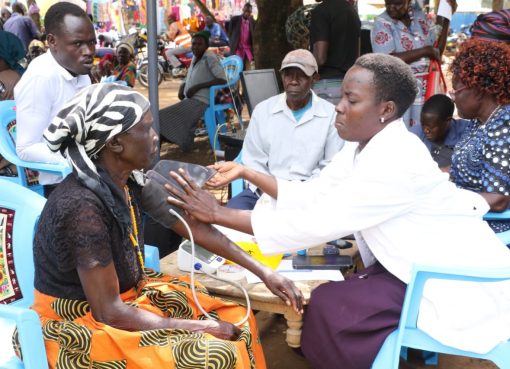Livestock farmers in Kajiado County are now turning to crop farming as the ongoing drought has decimated their livestock, leaving them with no alternative other than finding other means of a livelihood.
Mr. Joel Mutunkei, a livestock farmer in Isinya sub county opted to venture into crop farming after he lost more than 50 of his cattle to the biting drought. Mutunkei, has set aside 10 acres in his land to grow different crops for the ready Kitengela and Isinya markets.
“After the death of my cows, I decided to venture into crop farming and since I already had a solar powered borehole, all I needed was to set up drip pipes and buy the watermelon and capsicum seedlings which I started with,” narrates Mutunkei.
He says that he decided to venture into farming after realizing that a friend who was practicing irrigation in the same area did not incur losses like him when the drought ravaged.
Unlike Mutunkei, his friend practiced mixed farming whereby he planted a variety of crops on his farm alongside keeping 30 cattle.
“The friend would feed his cows with left over produce from the farm while still selling milk and the crops to the market. His cattle have been sustained by the farm produce unlike mine which depended entirely on rain-fed pasture,” says Mutunkei.
The 38-year-old Mutunkei decided to try his luck and not to incur losses like he did in the livestock sector, he involved an agronomist who advises him on the best crops to grow in which season and the fertilizer and pesticides to use.
Mutunkei started with growing watermelons and capsicum, which he says, brought him profit.
“I planted seven acres of watermelons in September last year and harvested 4.5 tonnes in the months of December and January. Apart from the labour, fertilizer and pesticides costs, I did not have any other production costs as the land is mine and I use a solar powered borehole,” said Mutunkei.
With the ready market in Kitengela, Mutunkei was able to sell the watermelons at Sh25 a kilo which brought him profit unlike if he had invested in more cows. He also grew capsicum on half an acre and he continues to sell it up to date at Sh40 a kilo.
After realizing profits in crop farming, the determined Mutunkei has now planted cabbages which he says will be ready for harvesting in April.
Asked whether he will give up livestock farming for crop farming, he says that just like his friend, he will practice mixed farming as the drought has already decimated his livestock making them easily manageable.
“When the drought persists however and I maximize on profits at the farm, I will do away with livestock rearing completely,” remarked Mutunkei.
Janet Naisiae has also decided to venture into crop farming after 20 of her cattle were killed by the biting drought. Though Naisiae was previously farming for fun, she has decided to venture fully into crop farming.
She has grown onions and vegetables on her 5-acre farm and unlike Mutunkei, she laments on the high cost of water as her borehole uses electricity to pump the water.
“In some months, the electricity bill can go up to Sh50, 000 and this reduces the profits I get from the onion sales. I am determined to continue farming though as I look for ways to reduce water pumping costs,” says Naisiae.
The two farmers are asking both the national and county governments to train farmers on drought resilience and new methods of livestock keeping.
“Though the cows were our only source of livelihood, we are used to keeping them traditionally just for the sake of it but the ravaging drought has opened our eyes. We need to be trained on how to keep them for profits, we also need training from crop officers so that we can reap maximum profits,” says Naisiae.
They are also asking the government to construct big water dams at least in every sub county within the county that will enable those without boreholes to practice irrigation.
By Diana Meneto





